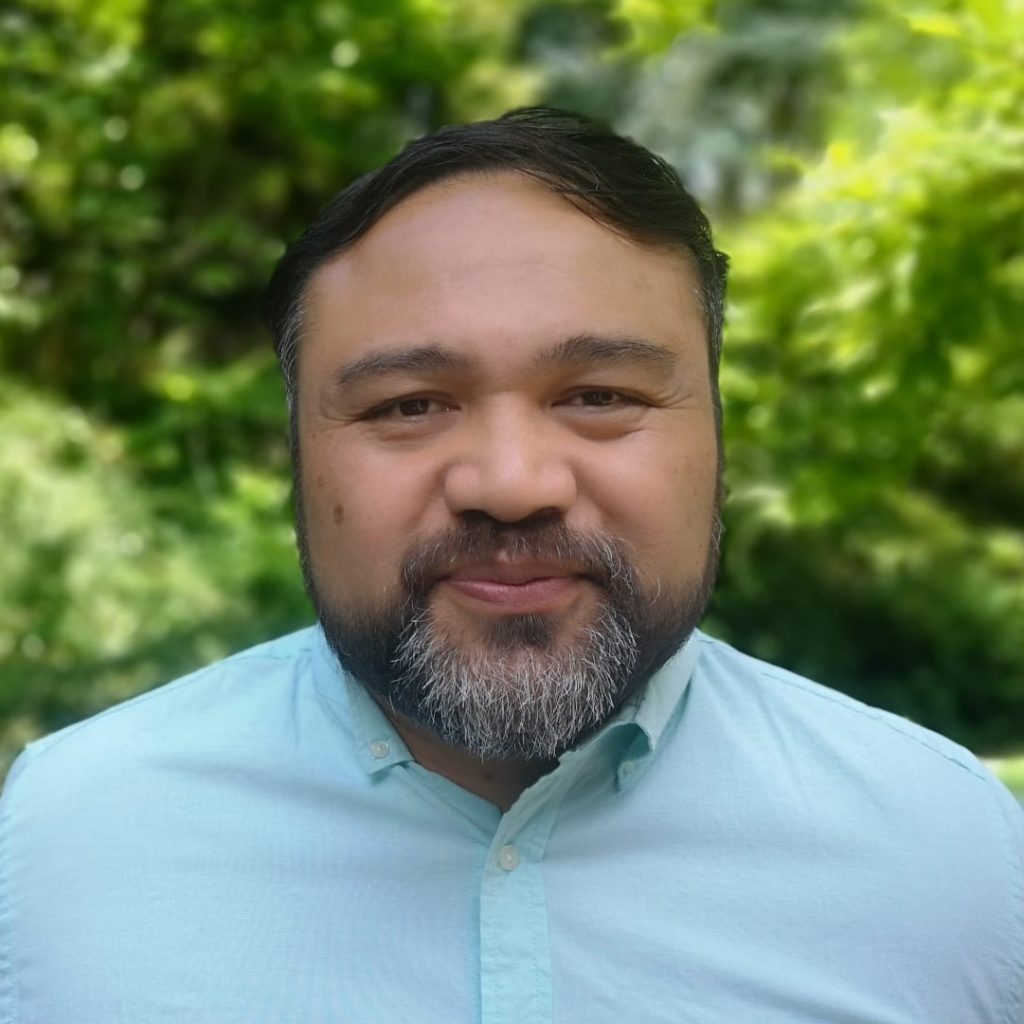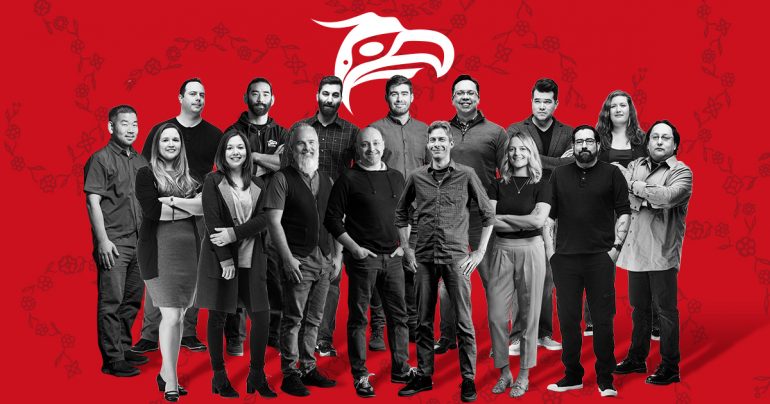Shopify’s global Indigenous programs lead has departed the company to join Indigenous-owned Animikii as it looks to raise a Series A round of capital.
David Pereira joined Animikii this week as COO, bringing with him to the startup more than a decade of global business and capital markets experience.
Pereira joins Animikii after almost four years at Shopify where he held a variety of roles, including money solutions specialist, growth strategist for Shopify for Startups, and most recently global Indigenous programs lead, a role he took on in October 2020.
“We’re trying to decolonize technology, we’re trying to decolonize how we work in business, and how we operate.”
Founded in 2003 by Jeff Ward, Animikii was the first Indigenous certified B Corp in Canada, and is also a Certified Aboriginal Business member of the Canadian Council for Aboriginal Business (CCAB). Animikii provides a variety of services including website design, custom software, design and branding, and digital communications.
In addition to offering tech services, Animikii calls itself a social enterprise.
“As a purpose-driven social enterprise with Indigenous values we are trying to create technology and operate a business through the lens of an Indigenous worldview,” Ward told BetaKit. “But also thinking broadly, this is about bringing Indigenous web tech to the world, and finding opportunity through technology to advance reconciliation, economic justice, and creating equitable outcomes for Indigenous Peoples.”
“We’re trying to decolonize technology, we’re trying to decolonize how we work in business, and how we operate, having to operate within some colonial structures,” the CEO added, pointing to the Government of Canada and the Canada Corporations Act as two such structures.
Ward explained Animikii’s approach as working within those structures with an eye towards empowering future Indigenous generations.
“How can we work within those frameworks? How do we do business a little bit differently [and] try to do tech a little bit differently, with a longer-term, seven generations thinking of what can we create today that will last and benefit generations to come,” he said.
All of Animikii’s work and dealings are rooted in seven values, which derive from the 7 Grandfather Teachings from Anishinaabe culture. These include humility, truth, honesty, wisdom, respect, courage, and love.
Ward explained that coming at business dealings from this lens has helped Animikii create its Board Equity Policy, a requirement to have 50 percent women or non-binary folks and 50 percent Indigenous representation. As of today, the Animikii board consists of four people, two of whom are women and two of whom are Indigenous.
Animikii is backed by Raven Indigenous Capital Partners, which led a $1 million financing round in Animikii in 2019. The round also included a loan from BDC’s Indigenous Entrepreneur Loan Program.
Since then, Animikii has grown from 11 employees to a team of 32. Ward told BetaKit his company has also seen strong year-over-year growth, though did not share financial details.
“Animikii is an outstanding example of an Indigenous tech firm,” Raven Capital managing partner Paul Lacerte told BetaKit in a recent interview for the BetaKit Podcast. “They are a national beacon of what Indigenous integrity looks like and it’s why people want to do business with them.”
Lacerte called Ward someone who is “laser-focused” on changing the narrative of the Canadian tech ecosystem from one that views Indigenous Peoples and entrepreneurs as in need of help to one that sees the success they have in the space. Lacerte called this process “recolonizing the virtual space” to one that respects cultures and gender.
“Statutory holidays provide an opportunity for an act of decolonization – replacing western interpretations and celebrations of history with an Indigenous perspective.”
Over the last year at Shopify, Pereira helped build and lead Indigenous programs within the company. Those programs include version 2.0 of a partnership announced last year between Shopify and Indigenous-led organizations in Turtle Island (Canada) and Aotearoa (New Zealand), including Raven Indigenous Capital Partners, EntrepreNorth, Te Whare Hukahuka, and Rise2025.
The initiative helped co-create local and “culturally relevant” e-commerce education and provided participants with free access to Shopify’s platform for six months. In addition, Shopify also promised to provide the program partners with undisclosed financial contributions to support the scale of their programs.
Earlier this year, Shopify partnered with Raven Indigenous Capital Partners again when it launched an initiative alongside the Canadian Council for Aboriginal Business, EntrepreNorth, Pow Wow Pitch, and Facebook, offering a social media campaign featuring Indigenous-owned businesses in Canada.
Animikii is also a Shopify partner, having created an Indigenous Scholarship Fund last year through the e-commerce giant’s Dev Degree program.

For his part, Pereira said seeing one of Canada’s largest and most valuable companies make Indigenous Peoples and programming a focus was both exciting and what he’d hoped to see happen.
“At the same time, there’s always a fear [around] non-Indigenous companies … [and] what their motives are,” he said in an interview. “I can tell you Shopify’s motives, from what I could see, were pure and were right. And that even if it didn’t make financial sense in the short term … [Shopify has said it is] here for the long term, it’s the thing to do, we’re a Canadian company, and we will do this.”
It’s that acknowledgement from companies and a change in consumer consciousness towards social issues that led Pereira, in part, to join Animikii.
“I saw the change of consumers caring about the planet, caring about values around sustainability. Those creative conscious merchants and sellers, which have created more conscious companies,” he said. “They all came back to Indigenous worldview and values that have been around, and that were then disconnected from a Western society. And, so, those teachings come through and, and I see the opportunity to build something really special [with Animikii].”
RELATED: Canadian tech must embrace Indigenous reconciliation
Pereira joins Animikii just as Canada is recognizing the first National Day for Truth and Reconciliation. A commemoration honouring the children who died while attending residential schools in Canada, as well as the survivors, families and communities that continue to be affected by the legacy of the residential school system, it’s a day many, including Animikii, have advocated for over the years.
Many provinces and territories have made the day a designated holiday. However, Alberta, Saskatchewan, New Brunswick, Quebec, and Ontario have chosen not to recognize September 30 as a statutory holiday, a decision that has been criticized by Indigenous groups.
Animikii is recognizing the National Day for Truth and Reconciliation, though when it comes to other statutory holidays the startup has its own views.
“These legislated holidays are based on nationalistic, cultural, and religious criteria as determined by each country (and areas within countries),” the company’s website states. “While some holidays may hold special significance to certain groups of people, other groups may not identify with the significance or even understand the significance of the holiday.”
“Statutory holidays provide an opportunity for an act of decolonization – replacing western interpretations and celebrations of history with an Indigenous perspective. We can create space to support Indigenous worldviews and celebrate diversity by how we treat statutory holidays,” the company says.
With this in mind, Animikii has developed a practice where it allows its employees to choose when they take their statutory holidays.
When it comes to the National Day for Truth and Reconciliation, Ward hopes the day provides a space for conversation.
“There are calls to action that came out of the Truth and Reconciliation Commission. There are 94 calls to action and call to action number 92 is for the corporate sector, it is for businesses,” said Ward. “The tech sector and the corporate sector has been called upon to do better. And that’s a responsibility that I think a lot of technology companies might not think they have. So, especially today, this is why, like at Animikii, and personally, I’ve advocated for a new statutory holiday.”
“It is causing more and more conversation, it’s leading to conversations around, yes the dinner table, but also around the boardroom table,” the CEO said. “[At Animikii] we’re trying to … be hopefully a good example of an Indigenous tech company, or a company that values these movements.”


